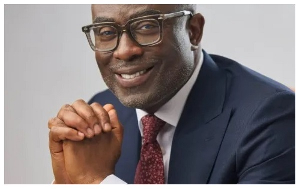- Home - News
- TWI News | TV
- Polls
- Year In Review
- News Archive
- Crime & Punishment
- Politics
- Regional
- Editorial
- Health
- Ghanaians Abroad
- Tabloid
- Africa
- Religion
- Election 2020
- Coronavirus
- News Videos | TV
- Photo Archives
- News Headlines
- Press Release
Editorial News of Saturday, 21 July 2007
Source: Ghanaian Chronicle
EDITORIAL What is the True State of the Energy Problem Now?
THE GOVERNMENT has, since last year, been battling to solve the serious energy crisis that has engulfed the nation culminating in a load-shedding or what is commonly referred to as power rationing exercise since August last year.
The consequences have so far been grave, but the efforts by the government in dealing with the situation have also been commendable though the nation is yet to get out of the problem.
In the last couple of weeks, there have been contradictory reports about the state of the Akosombo hydroelectric dam. Some reports say the water level has reached a crisis state and the two turbines currently operating are likely to be shut down sooner than later unless there is a miraculous intervention.
These reports have, however, been denied by state officials giving the hope that if anything at all, we are heading for an improvement in the situation as promised by the Energy Ministry rather than moving towards a worse situation.
The politicians may continue with the debate of who did what and who could have done better, but for all or at least most Ghanaians, what matters most is having electricity in our homes, workplaces and companies and for Ghanaians all efforts must therefore be geared towards finding a solution to the problem.
For now, anyone who may be interested in the perpetuation of the blame game would just be doing so for his or her personal agenda and obviously not in the interest of the citizenry and the nation for that matter.
It is however important to point out to the government and all managers of the energy sector that, considering the sensitive nature of the problem, it is important to keep faith with the people. At all times, people must be told about the true state of the situation. If things are getting better, the masses need to know. If on the other hand, the situation is getting worse, we must be told.
Government officials have since not said anything about the September deadline that was given for the end of the energy crisis. The expectation, therefore, is that after September 30, the crisis would be over.
The Chronicle wishes to, however, point out that considering the inadequate rainfall that has resulted in the continuous decline in the water level of the Akosombo dam, one would have expected government officials to continuously let the populace know on daily or weekly basis -just as the water level of the dam is made known daily- the true state of the energy situation. This way, the efforts of government in dealing with the problem will be well appreciated.
If the energy ministry remains silent on the issue then the reasonable conclusion is that it still stands by the September 30 deadline. If this is the case that the ministry ought to be reminded that a failure on their part to deliver on the promise would be another blot on the image of the government since that would have been the second time the government had failed to meet its own deadline in solving the energy situation. The Chronicle believes that the only way for the government to keep faith with the masses even in the event where the energy crisis persists after September 30, is by constantly letting people know what was happening.
What is the total capacity of energy being generated by the plants that were procured and installed as part of the short-term interventions, what is the current generating capacity of the Akososmbo and Bui dams as well as the Aboadze thermal plant? Who is telling the truth about the state of the Akosombo dam and who is lying. Are we going to be able to meet the September deadline?
To sum up these relevant questions, The Chronicle wishes to ask the appropriate institutions managing the energy situation: What is the true state of the energy situation now?
Opinions









